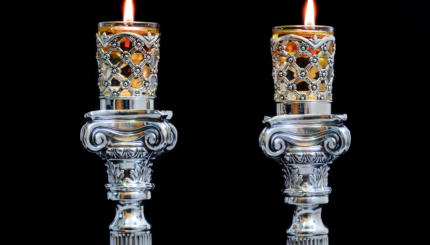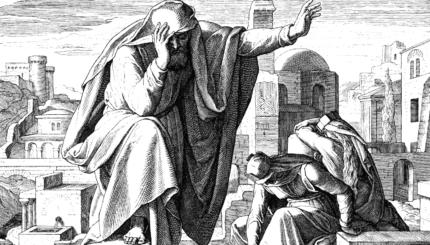Maot Hittin is an ancient custom that is still very much in practice. Many people have taken part in this activity without even realizing they have done so. Historically, American congregations have been instrumental in providing poor Jews in distant communities in Europe with free matzot. This was especially true after World War II.
In the 1970’s American congregations sent matzot to refusniks in the USSR. More recently, congregations have sponsored the construction of new matzah bakeries in the FSU. Excerpted with permission from Every Person’s Guide to Passover. (Jason Aronson, Inc).
The custom of assisting the poor with free provisions of food for Passover is very ancient. The Talmud (Pesachim 99b) mandated a distribution of wine to the poor for the obligatory four cups at the Seder so that every person may proclaim the miracle of the exodus.
 We learn from a source in the Jerusalem Talmud (Baba Batra 1:6) of a third-century Palestinian custom to give wheat to the poor for the baking of matzot. Resident citizens were subject to a special Passover charity tax, and indigent residents were entitled to Passover assistance of free wheat. As part of this custom, the recipient of the wheat took it to the mill, obtained his own flour, and baked his own unleavened bread.
We learn from a source in the Jerusalem Talmud (Baba Batra 1:6) of a third-century Palestinian custom to give wheat to the poor for the baking of matzot. Resident citizens were subject to a special Passover charity tax, and indigent residents were entitled to Passover assistance of free wheat. As part of this custom, the recipient of the wheat took it to the mill, obtained his own flour, and baked his own unleavened bread.
In the Middle Ages, the custom was changed in many localities and the community took on the responsibility for the baking of matzot and their distribution to the poor. When commercial bakeries were established, the method of Passover assistance changed once again. It was more convenient to give money to the poor, who in turn bought wheat and baked their own matzot or had them baked in a commercial bakery. This form of assistance became known as maot hittin (“money for wheat”). Modern custom has adopted both practices: the distribution of money and of food packages.
Talmud
Pronounced: TALL-mud, Origin: Hebrew, the set of teachings and commentaries on the Torah that form the basis for Jewish law. Comprised of the Mishnah and the Gemara, it contains the opinions of thousands of rabbis from different periods in Jewish history.


